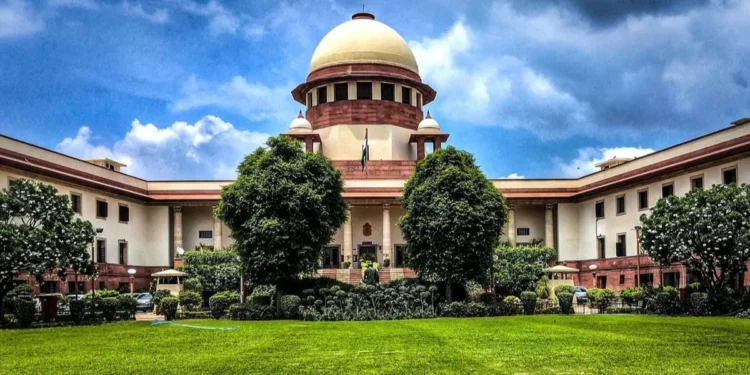Lagatar24 Desk
New Delhi: The Supreme Court on Thursday put a hold on the Lokpal’s ruling that granted it the authority to investigate High Court judges under the Lokpal and Lokayuktas Act, 2013. Calling the decision “very disturbing,” the apex court issued notices to the Centre and the Registrar of Lokpal, seeking their responses.
The Supreme Court took up the matter suo moto after the Lokpal, India’s anti-corruption ombudsman, passed an order on January 27 while hearing two complaints against a sitting additional judge of a High Court. However, the top court directed that the judge’s name should not be disclosed.
Centre Opposes Lokpal’s Interpretation
Solicitor General Tushar Mehta, representing the Centre, strongly opposed the Lokpal’s interpretation, stating that High Court judges do not fall within its jurisdiction. He argued that Lokpal cannot probe judges as they are covered under separate judicial accountability mechanisms.
The controversy stems from two complaints where a High Court judge was accused of influencing an Additional District Judge and another High Court judge handling a case against the complainant. The complainant also alleged that the company involved in the case was previously a client of the accused judge when he was an advocate.
Lokpal’s Stand on High Court Judges as ‘Public Servants’
The Lokpal bench, headed by Justice AM Khanwilkar, ruled that High Court judges fall under the definition of a “public servant” as per Section 14 of the Lokpal and Lokayuktas Act, 2013. The ruling stated that the law does not explicitly exclude judges from being investigated by the anti-corruption watchdog.
However, in a cautious approach, the Lokpal sought the Chief Justice of India’s guidance before taking further action on the complaints.
“We make it amply clear that by this order, we have decided a singular issue finally – as to whether the judges of the High Court established by an Act of Parliament come within the ambit of Section 14 of the Act of 2013, in the affirmative. No more and no less,” the Lokpal stated in its ruling.
Supreme Court’s Intervention
Expressing concern over the Lokpal’s interpretation, the Supreme Court temporarily stayed the order and sought clarification from the central government. The case has now escalated into a significant constitutional debate over the jurisdiction of the Lokpal and the independence of the judiciary.
What’s Next?
With the Supreme Court now involved, the final verdict will determine whether the Lokpal and Lokayuktas Act, 2013extends to High Court judges or if their accountability should remain under existing judicial oversight mechanisms.







